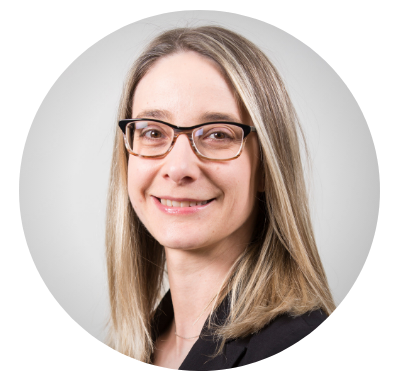My path was not "designed" in advance!

Interview with nancy michaud, a committed and professional teacher
> Back to the Interviews and portraits
What drew you to the CPA profession?
That is an excellent question, because I did not "plot out" my path in advance! When I graduated from high school, I had no idea which program to enrol in at CEGEP. I liked the sciences, especially chemistry and human biology. Plus, I really loved math and definitely had an aptitude for it. However, I was also a voracious reader and interested in learning languages. After reading about the programs offered at the CEGEP de Rimouski, my home town, I ended up choosing the DCS in Business Management, Finance option. I never regretted my choice! In my last year, a teacher talked to me about the benefits of getting an accounting designation. That dedicated teacher, Mr. Marc Parent, whom I thank for his great advice, was able to convince me that this wonderful profession was right for me. I then applied to UQAR to study in its bachelor of accounting program!
You successfully defended your doctoral thesis recently. Congratulations! Why did you want to do a Ph.D. and research professional judgment in the audit process?
Did you ever think that you would go so far in your academic and professional career while you were making your way toward the CPA designation?
Not at all! My main goal was to get the professional designation! That was already a huge goal for me, considering that I initially chose a technical DCS program so that I could enter the job market quickly!
But after a few years of working at a firm, I decided to go for a master's in business administration. That was when I began to consider a career as a professor and a master's degree would be important if I wanted to apply for a job as an accounting professor.
You received a large doctoral scholarship from the Foundation during your studies. What has this scholarship helped you achieve?
What kind of impact can donors have on students' careers when they contribute to the CPA Foundation's mission?
The scholarships offered by your Foundation can make ALL the difference! Not only do they provide significant financial support that allows students to continue their studies, but these scholarships are also a form of encouragement for the students who receive them. The mental boost you get from receiving these scholarships is undeniable. In fact, students feel a sense of pride which then increases their self-confidence. These are positive factors that contribute to their academic success!
Since you are training the next generation of CPAs as an educator, what is your best advice for them? What would you like them to take away from your research?
What are your future challenges or plans?
There are several fundamental challenges in the research part of my job as a professor! Right now, I am working on academic articles related to my doctoral thesis. My doctorate allowed me to collect a rich set of data and learn about a data collection process that has yet to be used by the academic community in management. In addition, some of my findings should be analyzed from a new perspective, using different theoretical frameworks that I will first need to study.
Another short-term project, my doctoral training in qualitative research and my governance knowledge earned me an appointment as a "guest researcher" at the Université de Moncton's Health Services Organization Research and Innovation Group. Finally, I just finished an important application for a grant that will enable me to study practices in welcoming and retaining francophone immigrants who settle in rural regions. There is a lot of interest in this topic right now, because it may provide potential solutions for the labour shortage that is increasingly impacting Canadian businesses.
